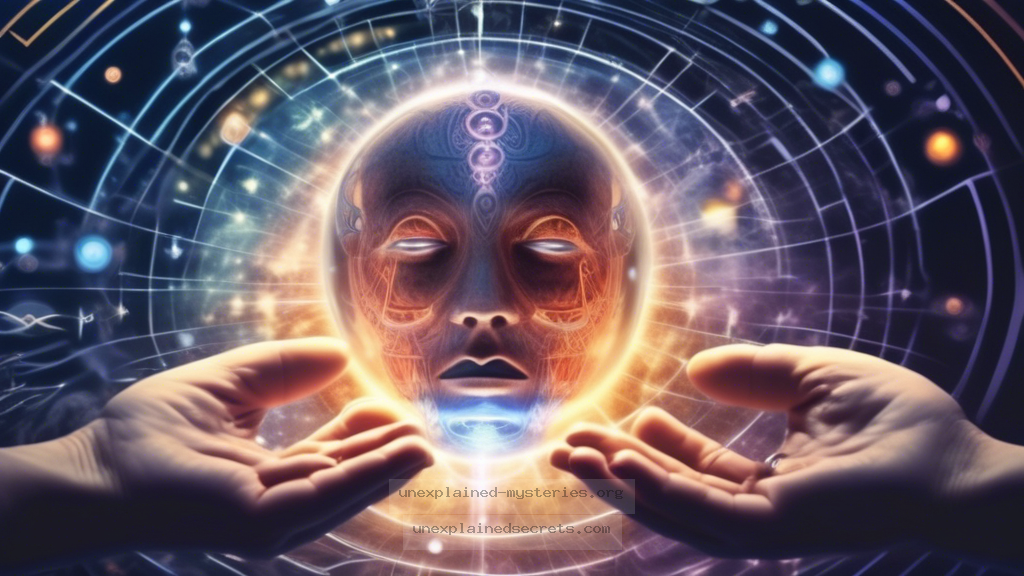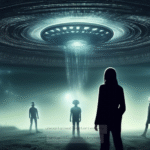Can Psychic Abilities Be Scientifically Proven Through Documented Cases?
Can Psychic Abilities Be Scientifically Proven Through Documented Cases?
The ongoing debate surrounding psychic abilities captivates researchers, enthusiasts, and skeptics alike. The question of whether these phenomena can be scientifically validated is not merely academic; it impacts our understanding of consciousness, the human experience, and even the fabric of reality itself. In this blog post, we will explore compelling documented cases of psychic abilities, the scientific testing these phenomena have undergone, and the implications of such abilities for our understanding of the mind and reality.
Historical Context of Psychic Abilities
Psychic phenomena have been a part of human history for centuries, often intertwined with cultural beliefs and practices. From ancient shamans who claimed to communicate with the spirit world to modern psychics offering clairvoyance, the notion that some individuals can perceive information beyond ordinary sensory channels has persisted across time and civilizations.
In the early 20th century, figures such as Edgar Cayce and Uri Geller brought psychic phenomena into public consciousness. Cayce, known as the “Sleeping Prophet,” purportedly accessed information while in a trance state. Geller, famous for his spoon-bending feats, claimed to possess psychokinetic abilities. These cases sparked scientific interest, leading to the establishment of organizations like the Parapsychological Association, which aimed to study such phenomena rigorously.
Core Concepts and Theories Behind Psychic Abilities
At the heart of psychic abilities lies a diverse array of theories attempting to explain how these phenomena could occur. Some of the most notable concepts include:
- Telepathy: The ability to transmit thoughts or feelings between individuals without using known human senses.
- Clairvoyance: The purported ability to gain information about an object, person, or event through extrasensory perception (ESP).
- Psychokinesis: The ability to influence physical systems with the mind, such as moving objects without physical interaction.
While these concepts may sound fantastical, proponents argue that they fall within the realm of possibilities when considering the complexities of consciousness. Some researchers propose quantum theories, suggesting that consciousness might interact with the quantum field, thus allowing for such extraordinary experiences.
Key Point: Theories about psychic abilities challenge our conventional understanding of physics and consciousness, indicating that we may not yet fully understand the potential of the human mind. 💡
Documented Cases of Psychic Phenomena
Numerous documented cases have emerged throughout history, providing anecdotal and sometimes empirical evidence for psychic phenomena. Here are a few significant examples:
| Case | Description | Significance |
|---|---|---|
| Edgar Cayce | Cayce provided health readings while in a trance, often diagnosing ailments and suggesting remedies. | His accuracy in medical diagnoses has led to ongoing research into the intersection of consciousness and healing. |
| Ruth Montgomery | Montgomery was a renowned psychic who wrote several books detailing her experiences with clairvoyance. | Her work popularized psychic phenomena and led to increased scientific scrutiny. |
| Dr. Dean Radin | A leading researcher at the Institute of Noetic Sciences, Radin has conducted numerous experiments on ESP and psychokinesis. | His findings have contributed to both skepticism and support for the scientific study of psychic phenomena. |
Scientific Testing and Methodologies
The scientific community has approached the study of psychic abilities with a mix of fascination and skepticism. Rigorous methodologies have been employed to test these phenomena, including:
- Double-blind experiments: Used to eliminate bias, where neither the participant nor the researcher knows critical information.
- Random number generators: Studied to see if participants can influence outcomes beyond chance.
- Meta-analyses: Aggregating data from various studies to assess the overall evidence for psychic phenomena.
One notable example is the work of Dr. Daryl Bem, who conducted experiments testing precognition. His findings suggested that individuals could predict future events, challenging traditional understandings of time and causality. While met with criticism, his studies sparked renewed interest in seriously examining the potential validity of psychic phenomena.
Notable Fact: In 2010, Dr. Bem’s precognition research was published in the journal Journal of Personality and Social Psychology, igniting both acclaim and controversy in the scientific community. ⚠️
Practical Implications of Psychic Abilities
The implications of validating psychic abilities extend beyond mere curiosity; they could revolutionize fields such as medicine, psychology, and even quantum physics. Imagine a world where individuals can tap into intuitive insights about their health or relationships—this could redefine healthcare paradigms and enhance personal well-being.
Furthermore, if psychic abilities are proven to exist, it may lead to a re-evaluation of our understanding of consciousness and its relationship with the universe. This could open avenues for new technologies, therapies, and ways of interacting with reality.
Alternative Perspectives on Psychic Abilities
While many advocate for the exploration of psychic phenomena, others remain skeptical. Critics argue that anecdotal evidence lacks the rigor of scientific proof and that many purported psychic experiences can be attributed to cognitive biases, such as confirmation bias or the placebo effect.
Moreover, the replication crisis in psychology raises concerns about the reliability of studies supporting psychic abilities. Critics contend that many studies lack methodological rigor, leading to false positives. This dichotomy between belief and skepticism fuels ongoing debates in both scientific and philosophical circles.
Common Misconception: Many believe that psychic abilities are a straightforward manifestation of supernatural powers, ignoring the complex psychological and environmental factors that may be at play. ✅
Common Misconceptions and Clarifications
Psychic abilities are often shrouded in misunderstanding, leading to various misconceptions. Here are some common myths and the clarifications that accompany them:
- Myth: All psychics are frauds.
- Clarification: While there are certainly fraudulent claims, many individuals report genuine experiences that warrant investigation.
- Myth: Psychic abilities are always dramatic or overt.
- Clarification: Many psychic experiences are subtle, such as feelings of intuition or knowing, which may not be immediately recognized as psychic phenomena.
Best Practices for Investigating Psychic Phenomena
For those interested in exploring psychic abilities, whether as researchers or enthusiasts, employing best practices can yield more reliable insights:
- Maintain an open mind: Approach the subject with curiosity rather than preconceived notions.
- Utilize scientific methods: Conduct experiments using rigorous methodologies to minimize bias and errors.
- Document experiences: Keep detailed records of any psychic experiences, noting the context and outcomes.
By adhering to these practices, individuals can contribute to a more significant understanding of psychic phenomena, paving the way for future research and discussions.
Future Developments and Ongoing Research
The field of psychic research is continually evolving, with new technologies and methodologies emerging. Researchers are increasingly leveraging advancements in neuroimaging and quantum physics to explore the potential mechanisms behind psychic abilities. Studies examining brain activity during psychic experiences are becoming more common, providing insights into how these experiences manifest neurologically.
Additionally, interdisciplinary collaborations among psychologists, physicists, and parapsychologists are on the rise, promising a more holistic understanding of consciousness and its capabilities. As societal attitudes toward such phenomena shift, we may witness a broader acceptance and exploration of psychic abilities within the scientific community.
Future Insight: As technology advances, we may unlock new ways of understanding and testing psychic abilities, leading to groundbreaking discoveries. 💡
Conclusion
The question of whether psychic abilities can be scientifically proven is complex and multifaceted. Documented cases, scientific methodologies, and ongoing research provide a compelling landscape for exploration. While skepticism abounds, the potential implications of validating psychic phenomena could reshape our understanding of consciousness, reality, and the human experience. By approaching the subject with an open mind and rigorous inquiry, we may uncover truths about our existence that have remained elusive for centuries.
In summary, the exploration of psychic abilities is not merely an academic pursuit; it represents a profound inquiry into what it means to be human and the untapped potential within our minds. As we move forward, the journey toward understanding these phenomena promises to be as intriguing as the mysteries themselves. 🌌
Other Articles
Recent Posts
- What Happened to Flight MH370? The Conspiracy Theories That Still Haunt Us
- What Secrets Lurk Within the Walls of the Infamous Trans-Allegheny Lunatic Asylum?
- What Evidence Supports the Existence of Bigfoot in the Pacific Northwest?
- What Happened to the Indus Valley Civilization? Unraveling the Mysteries of Ancient Urban Life
- Can Telepathy Be Scientifically Proven Through Laboratory Evidence?







